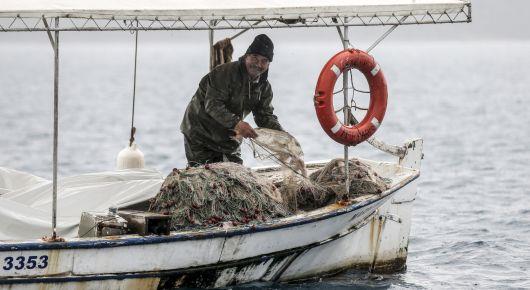FAO starts the dialogue on COVID-19 impact on fisheries and aquaculture for Europe and Central Asia

An FAO webinar provided an opportunity for governments, experts, civil society, and the industry to take stock on the response of fisheries and aquaculture to the COVID-19 crisis.
The recording of the virtual event is now available online.
The virtual event examined impacts of the COVID-19 pandemic on the fisheries and aquaculture industries and food security in countries of Europe and Central Asia, shared industry good practices and policy responses to the pandemic, including industry actions and governmental measures, and explored the sector’s immediate and long-term needs in this regard.
“Measures to mitigate the virus have had serious consequences on international trade; and since fish and fish products are the most highly traded food commodity internationally, the impact of COVID-19 on the fish supply chain and operations has been profound, too,” said Haydar Fersoy, senior FAO fisheries and aquaculture officer. “Demand for such food items has also been affected negatively by interruptions to the supply chain.”
This in turn will have a damaging effect on fishers and fish farmers’ livelihoods, as well as on food security and nutrition for populations relying heavily on fish for animal protein and essential micronutrients. Yet, the pandemic’s consequences on the fisheries and aquaculture sector in Europe and Central Asia has not been documented well.
The webinar included presentations from Kyrgyzstan, Albania, Ukraine and Uzbekistan, giving an overview of the domestic situation, as well as from the international organizations INFOFISH and EUROFISH providing the information about mitigation, adaptation measures and other good practices from Europe, Asia and the Pacific.
The virtual event is part of an FAO series of regional COVID-19 webinars.
12 March 2021, Ankara, Turkey
